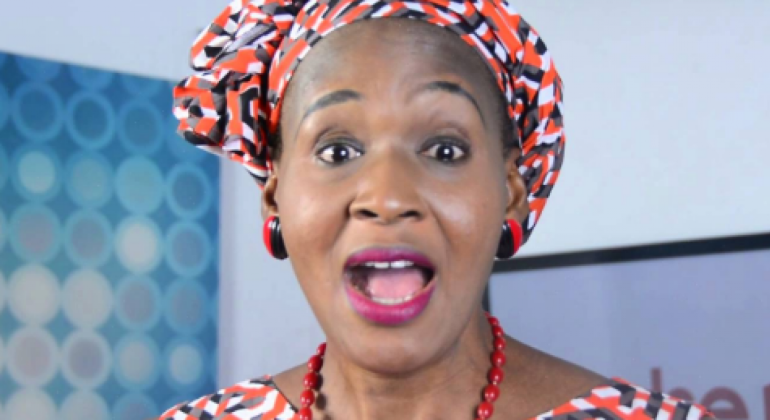Kemi Olunloyo, a figure known for her controversial presence in the media, has publicly disavowed her familial ties following the passing of her father, Dr. Victor Omololu Olunloyo, a former governor of Oyo State and a distinguished mathematician. This renunciation, delivered through a series of online posts and videos, highlights a deeply fractured relationship marked by allegations of abuse, occult practices, and familial discord. Olunloyo unequivocally declared that she would not be accepting condolences, asserting her separation from the Olunloyo family and reaffirming her previous declaration to never return to Nigeria, even in the event of her parents’ deaths. This dramatic distancing marks a culmination of long-standing tensions and a stark refusal to engage in traditional mourning rituals.
At the heart of Olunloyo’s disavowal is the allegation that her father presented a dual persona: a respected public figure and a tyrannical family patriarch. She paints a picture of a man who tormented his children, both emotionally and physically, shattering the family unit while simultaneously presenting a façade of familial harmony to the outside world. This alleged duality, a jarring contrast between public image and private actions, forms the crux of Olunloyo’s grievances and fuels her rejection of the family name and legacy. She claims her father strategically used her positive energy and public image as his favorite child for his own benefit, a manipulation she now resents deeply. This manipulation, coupled with the alleged abuse, forms the basis of her deep-seated resentment.
Further complicating the family narrative is Olunloyo’s accusation that her father engaged in occult practices until his later conversion to Christianity. This allegation adds another layer of complexity to the already strained family dynamics, suggesting a history steeped in secrecy and potentially damaging practices. The timing of his conversion, according to Olunloyo, followed her public confrontation of his occult involvement on his 80th birthday. This suggests a potential link between her accusations and his decision to embrace Christianity, though the precise nature of this link remains unclear. This revelation further underscores the fractured relationship and the deep-seated issues that have plagued the family for years.
A pivotal point of contention within the family, according to Olunloyo, revolves around her father’s second marriage to Aderonke Omololu Olunloyo, formerly Ronke Sonaike. Olunloyo claims this union, which occurred after her father met Sonaike during his 1983 governorship campaign, created a significant rift, particularly after Sonaike’s pregnancy. This event, she alleges, deeply distressed her mother, who had initially married an intellectual and PhD holder only to see him embrace polygamy. This shift in family structure, according to Olunloyo, contributed significantly to the breakdown of the family unit and further fueled the existing tensions.
Olunloyo’s public pronouncements paint a picture of a family grappling with deep-seated pain, unresolved conflicts, and a legacy marred by allegations of abuse and manipulation. Her decision to disown her family name represents a dramatic and public break, signaling a refusal to reconcile with the past and a desire to distance herself from the Olunloyo legacy. The stark contrast between her father’s public persona and the private reality she describes underscores the complex and often hidden dynamics within families, particularly those in the public eye. Her pronouncements, while deeply personal, offer a glimpse into the potential for discord and trauma that can exist even within seemingly successful and prominent families.
As of the current reporting, the Olunloyo family, including representatives of the late governor, have not publicly responded to Kemi Olunloyo’s claims. This silence leaves a significant gap in the narrative, preventing a full understanding of the family’s perspective on these serious allegations. The lack of response also highlights the sensitive and complex nature of family disputes, particularly when played out in the public arena. The absence of a counter-narrative allows Olunloyo’s version of events to dominate the public discourse, further emphasizing the power dynamics at play and the challenges of achieving a balanced understanding of such deeply personal and contentious family matters.














